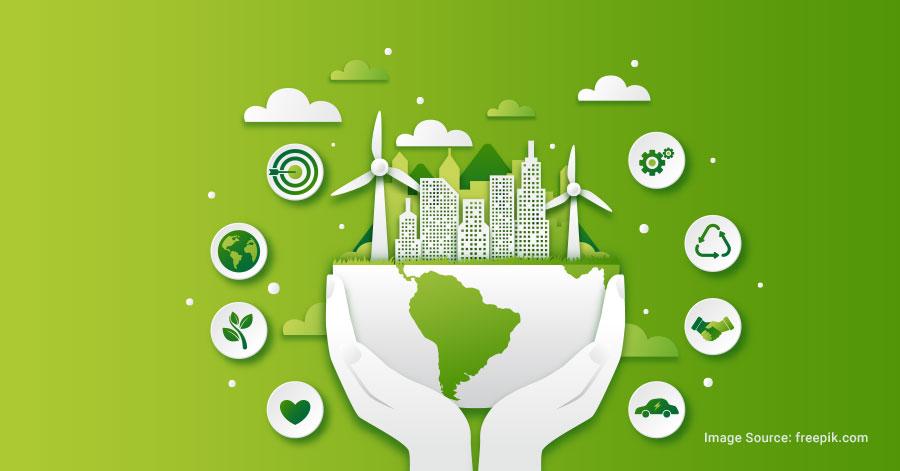Why is The Demand For Sustainability in Real Estate Development so Imperative at This Moment?
- 20th Jun 2022
- 1548
- 0

Never miss any update
Join our WhatsApp Channel
Today is the day when, if there was ever a time when it was necessary to delve deeply into the sustainability component of the building business, that time is now. The real estate sector, just like every other industry, is accountable in a variety of different ways for the climate change that the globe is now experiencing and that requires the whole world, including all industries, all people, and all governments, to collaborate in order to reverse.
The need for sustainable real estate developments in the housing market is of the utmost importance, and thankfully, many real estate developers, real estate buyers, and other players in the real estate ecosystem have realised this need and are taking concrete steps to usher the entire real estate category into the zone of being sustainable and environmentally friendly. These are only a few of the very first baby steps, but they have the potential to become the road map that all subsequent generations of real estate professionals follow in the years and decades to come.
The demand from customers has shifted toward residences that are more energy-efficient, especially as a result of the lockdown incident, which highlighted the shortcomings of energy-intensive constructions. Because more people will be living in and working from their homes, there will be an increased need for environmentally friendly and cost-effective energy systems in residential buildings. In addition, environmentally friendly houses may help save time and money since the materials that are used are easily accessible. In some of these structures, the developers obtain materials from local suppliers, which not only saves time but also reduces the carbon footprint since it cuts down on the distance that the materials must be transported. This helps to foster a stronger feeling of community as well as adds to the growth of the economy in the area.
According to the findings of recent research, buildings with high overall environmental quality can reduce the risk of respiratory diseases, allergies, asthma, sick building symptoms, and improve worker performance. This shift toward environmentally conscious residential areas is not being overhyped, and here is why: buildings with high overall environmental quality can reduce the risk of respiratory diseases, allergies, asthma, and sick building symptoms. By utilising building materials and interior finish products with zero or low emissions, we may be able to enhance the quality of the air that we breathe within our house. Aside from the cost-benefit analysis, there are a variety of social advantages associated with the construction of green buildings. These benefits include the enhancement of tenant health and well-being as well as an increase in labour productivity. The business sector is increasingly interested in green buildings because of the positive effects they have on the environment as well as the level of pleasure they bring to employees.
At the same time as governments are planning for the era of recovery, there are voices calling for a greater focus to be placed on the environmental sustainability. In recent years, the Indian Green Construction Council (IGBC) has worked in conjunction with a large number of organisations that are run by the Central Government and other State Governments in India to promote the green building revolution. However, there is a lot of untapped potential in India when it comes to green buildings, and there is still a long way to go. Taking into consideration the advantages it offers, the government's encouragement of its growth, and the increasing demand from customers who are concerned about the environment. Despite the fact that it is only getting started, India has quickly become one of the leading nations in terms of activities concerning environmentally friendly construction practises. India is only second to the United States when it comes to the total number of green technology projects as well as the amount of built-up land.
The real estate industry has taken a proactive stance on environmental concerns for a number of years. The business sector is moving ahead to enhance its performance in terms of sustainability out of both self-interest and a sense of social responsibility. The following ten years will be critical for the future of real estate if it is to genuinely play a part in a more sustainable, equitable, and inclusive future — a future with a zero-net-energy footprint. Any property that does not keep up with the changing debate about environmentally friendly real estate will eventually become irrelevant. Although a green premium is a one-time incentive, a brown discount will have a far bigger effect on the long-term financial viability of a building than a green premium ever could.
An affordable home, a luxury home, a budget home, a modern home

 Admin
Admin



Comments
No comments yet.
Add Your Comment
Thank you, for commenting !!
Your comment is under moderation...
Keep reading blogs